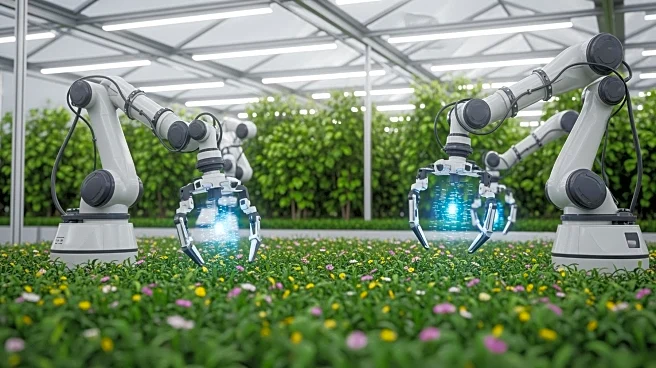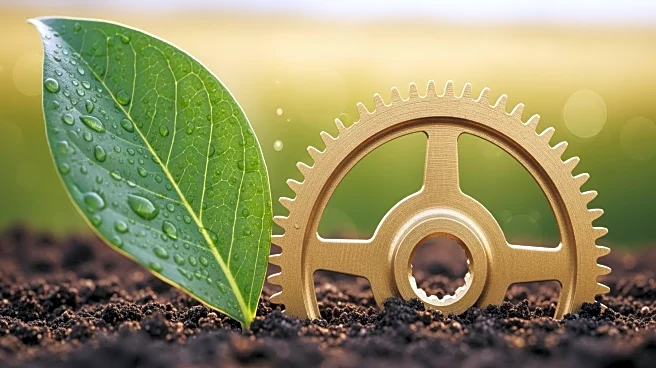What's Happening?
The University of Florida (UF) is breaking ground on a new artificial intelligence (AI) facility at its Gulf Coast Research and Education Center in Wimauma, Florida. This initiative aims to revolutionize
food production by integrating AI technology into various agricultural processes. The facility is designed to develop AI-powered equipment that can automate key aspects of farming, such as planting, pest control, harvesting, and packaging. The project is expected to be completed by early 2027 and will accommodate up to 50 students at a time. Nathan Boyd, a professor and associate director of the new AI facility, highlighted the transformative potential of AI in agriculture, noting its applications in monitoring plant growth, predicting yields, managing pests, and enhancing the efficiency of packing houses.
Why It's Important?
The establishment of this AI facility is significant as it addresses the growing demand for professionals skilled in both agriculture and AI technology. By developing practical tools for farmers, the facility aims to make food production more efficient, sustainable, and scalable. This initiative could lead to increased agricultural productivity and reduced environmental impact, benefiting both the agricultural industry and consumers. The integration of AI in farming could also lead to cost savings and improved resource management, which are crucial for meeting the challenges of feeding a growing global population.
What's Next?
The construction of the AI facility is set to continue over the next two years, with the official opening planned for early 2027. As the facility becomes operational, it is expected to attract students and researchers interested in the intersection of AI and agriculture. The development of AI-powered agricultural tools will likely prompt interest and investment from both the public and private sectors, potentially leading to further innovations in the field. Stakeholders in the agricultural industry may closely monitor the outcomes of this initiative to assess its impact on food production and sustainability.








